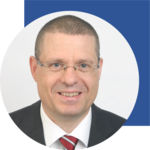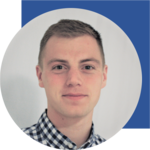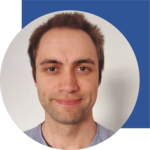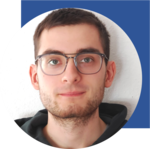2024 - KoMSO Academy
TorchPhysics: Deep Learning for partial differential equations, November 14 & 15, 2024

The Werner von Siemens Center for Industry and Science (Berlin), the Center for Industrial Mathematics (ZeTeM, University of Bremen) and the Committee for Mathematical Modeling, Simulation, and Optimization (KoMSO) are happy to host the second edition of the KoMSO Academy dedicated to ‘TorchPhysics: Deep Learning for partial differential equations’.
The KoMSO Academy aims at offering mathematicians a platform for an exchange on novel mathematical concepts relevant for industrial applications.
Deep Learning concepts for PDEs are booming and everybody working in this area is confronted with the challenge to decide on suitable architectures and concepts for tackling the respective problems. Hence, our present workshop aims at providing an overview on recent developments for deep learning concepts as well as dedicating substantial hours for training sessions with hands-on examples.
The workshop is based on collaboration with Bosch and our joint TorchPhysics-project, see github.com/boschresearch/torchphysics and will be complemented by invited talks of distinguished experts in the field.
We would very much prefer to see you in Berlin in person. However, we will provide online access for a limited number of participants not able to attend in person.
KoMSO Academy
KoMSO Academy aims at addressing novel trends connecting business and technology with mathematics at an early stage of development. They bring together leading experts from industry and academia for a discussion of the present state of the art, potentials and risks as well as future developments. They are open to short contributions by the participants aiming for feedback for their specific problems. The present workshop targets deep learning concepts for solving partial differential equations and related parametric studies. TorchPhysics has been jointly developed by Bosch and the University of Bremen. It aims at providing an ‘as simple as possible’ platform for testing AI concepts for solving PDEs. We include an introduction in using TorchPhysics as well as hands on exercises using this toolbox. Most importantly, we highlight a technical application for simulating corrosion problems. Furthermore, we highlight recent advances in modeling injection molding processes in industrial applications via deep learning based generative models.
Keynote Speakers

Claudia Drygala is a research assistant and doctoral candidate at the Chair of Mathematical Modeling of Industrial Life Cycles at TU Berlin. She completed her mathematics studies in 2020 at the University of Wuppertal, where she subsequently worked as a research assistant in the stochastics working group. Since October 2022, she has been associated with her research project in the DataNinja NRW Research Training Group. In her research, she deals with generative learning methods for problems in the field of autonomous driving and fluid dynamics, in particular to reduce the annotation and computational cost.

Hanno Gottschalk is Professor for Mathematical Modeling of Industrial Life Cycles at Berlin Technical University. In his research, he combines methods from computer vision and applied mathematics. In particular, this applied to applications of generative learning to problems from mechanical engineering. Hanno Gottschalk studied mathematics and physics at the universities of Freiburg and Bochum and obtained his PhD in mathematical physics in 1999 at Bochum University. He thereafter went to Rome Universita La Sapienza for PostDoc studies as DAAD fellow and pursued with research at Bonn University, where in 2003 he habilitated in Mathematics. In 2007 he switched to industry as a Core Competency Owner for Probabilistic Design in gas turbine engineering with Siemens Energy. In 2011 he changed to the University of Wuppertal as associate professor for stochastics. In 2018 he founded the Interdisciplinary Center for Machine Learning and Data Analytics at U Wuppertal together with Anton Kummert and became the first elected speaker in 2020. Since April 2023 he joined TU Berlin.

Uwe Iben is a Chief Expert for Applied Mathematics at Bosch Research. His main research aeras includes AI methods for solving of ODEs and PDEs as surrogate models. He has joined the Robert Bosch GmbH in 1999 as a simulation engineer. He worked 15 years on the field of multi-phase flow and cavitation as a project leader and Chief expert. From 2016 till 2020 he became the head of Research and Technology Offices in Saint Petersburg/Russia. Dr. Iben studied mathematics at Moscow State University and Technical University of Dresden. After his PhD in the field of numerical mathematics, he worked as a PostDoc at Otto-von-Guericke University, Magdeburg. In 2003, he received his doctorate in the field of modeling of cavitating flow phenomena from Otto-von-Guericke University Magdeburg, Germany. He became an honorary professor at the University of Stuttgart in 2017 where he gives lectures on multi-phase flow phenomena.

Alexander Klawonn works as a probabilistic modeling specialist at Siemens Energy. His current work is focused on utilizing machine learning methods, such as physics-informed machine learning models and graph neural networks, for building fast surrogate models for different stationary and non-stationary physical systems. He studied mechanical/aerospace engineering at RWTH Aachen, mathematics at the University of Hagen and has a PhD in material science from TU Kaiserslautern.

Peter Maaß (Professor for Applied Mathematics at the Center for Industrial Mathematics at University of Bremen, ZeTeM). His main research areas include inverse problems, parameter identification, and since several years deep learning. Prof. Maass studied mathematics in Karlsruhe, Cambridge and Heidelberg and obtained his doctorate in 1988 from TU Berlin as well as his habilitation in mathematics from Saarland University in 1993. Peter Maass was a full professor at Potsdam University from 1993 -1999 before becoming director of ZeTeM. He spent several longterm research visits as guest professor or researcher at leading international universities including Paris, Berkeley, Boston and Cambridge.
TorchPhysics Team University of Bremen



The library "TorchPhysics" was designed by Tom Freudenberg and Nick Heilenkötter (University of Bremen) as a part of their modeling seminar in a cooperation of the Centre for Industrial Mathematics and the Robert Bosch GmbH. It is currently maintained and developed by Janek Gödeke, Tom Freudenberg and Nick Heilenkötter together with a team of researchers at Bosch which is led by Prof. Dr. Uwe Iben. Its development is motivated by various applications from different fields at Bosch Research as well as in the working group 'Industrial Mathematics'.
Training Sessions
In the training sessions, PDE problems of different complexity are discussed and solved. At the start, we aim at providing the basis for solving standard test problems, like Poisson or Darcy flow equations, with AI concepts. These include physics informed networks (PINNs), the Deep Ritz Method and DeepONets. To this end, we introduce the TorchPhysics tool box in the first afternoon session. TorchPhysics allows the user to tackle many different PDE problems, especially on complex domains. Hence, in the later sessions we aim at solving more involved PDE problems such as the one depicted in the graphic below. Finally, we plan to discuss the individual PDE problems of the participants, i.e. the last afternoon session is devoted to a discourse on AI concepts suitable for specific PDEs provided by the participants. Hence, please feel free to bring your own problem.
Place and Agenda
The KoMSO Academy 2024 will take place at the Werner von Siemens Center for Industry and Science, Rohrdamm 88, 13629 Berlin
Online participation is possible for a limited number of participants and the dial-in data will be provided by E-mail.


Organizers & Registration
Organizers:
Prof. Dr. Hanno Gottschalk, TU Berlin, WvSC Berlin
Prof. Dr. Dr. Uwe Iben, Robert Bosch GmbH
Prof. Dr. Dr. h.c. Peter Maaß, Universiy of Bremen
Registration:
Date: November 14 & 15, 2024
Place: Berlin, or virtual
Registration fee for industry: 700 € (online 400 €) + VAT
Registration fee for academia: 400 € (online 200 €) incl. VAT
(Registration fee on site incl. conference dinner, 14 November 2024)
For registration please send an e-mail to the organization comittee:
komso-academy@math.uni-bremen.de
For all participants:The hands-on parts of the course require every participant to have the necessary software tools pre-installed before the start of the workshop. The installation guide can be found here.
We will offer an online check and assistance in installing the software during the week before the workshop.

